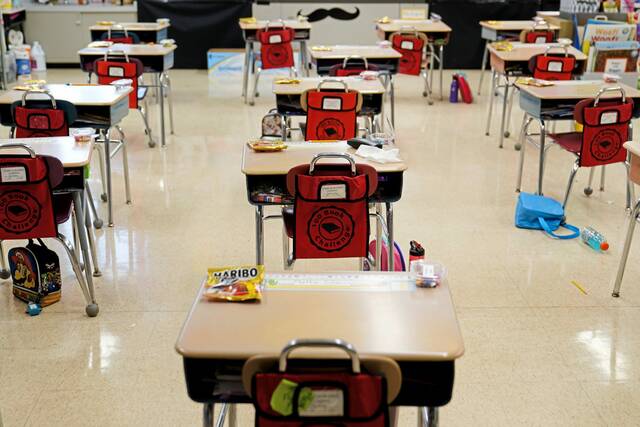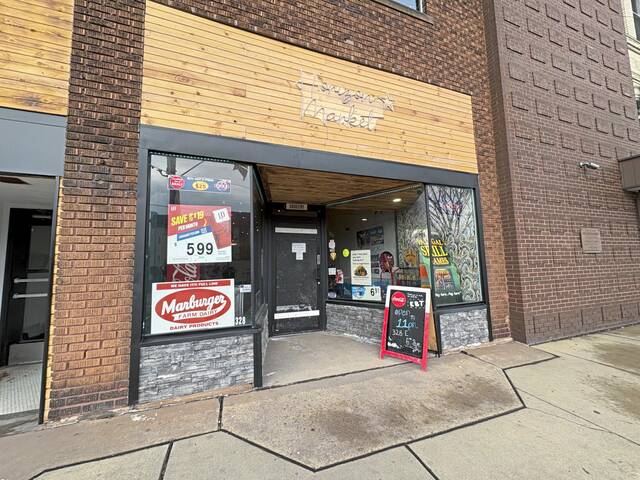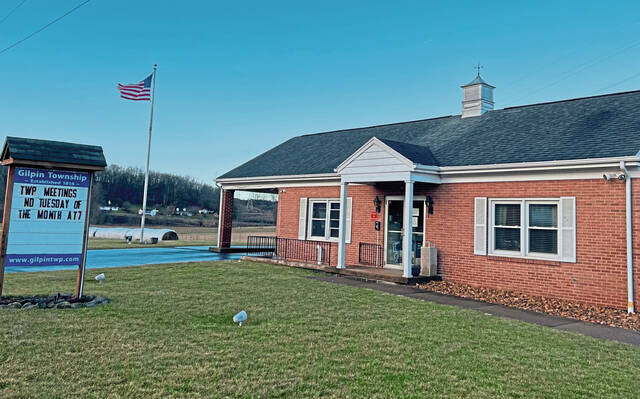The state’s nearly three-month budget impasse has cost Pennsylvania school districts almost $4 billion.
That’s how much districts, technical schools and intermediate units should have received in state funding since July 1 — the day a new budget was supposed to take effect.
Without a budget, the state isn’t making payments to school districts, leaving them to rely on incoming real estate tax collections, rainy day funds and even loans to keep the lights on.
By January, if a new budget or stop-gap measure isn’t approved in Harrisburg, education officials say districts will have used up budget surpluses and borrowing or cutbacks might not be optional — the costs of which would fall on local taxpayers.
“We definitely have had to monitor our cash flow closely since we are not receiving the state subsidy,” said Jennifer Callahan, Burrell School District’s business manager.
Dismal picture
Using data from the state Association of School Business Officials and the Pennsylvania State Education Association, the union representing most of the state’s teachers, crunched the numbers to review how much state money hasn’t been paid to public school districts as a result of the budget impasse.
“School districts across Pennsylvania are really starting to feel drastic financial pressure because of the state’s failure to pass a budget,” said Chris Lilienthal, education association spokesman.
The association found the typical school district keeps enough money in reserve to afford 87 days of expenditures. Thursday marked the 87th day of the 2025-26 fiscal year with no state budget.
Some districts ran out of reserves in mid-September, others are nearly there, and Lilienthal expects to see more next month. He cited the School District of Lancaster, which took out a $35 million loan to cover operations. The Uniontown Area School District took out a $5 million loan to cover operations.
“It is going to vary from district to district, but it’s going to hurt those districts with higher levels of poverty that depend on funding from the state,” Lilienthal said.
The numbers are striking.
Penn-Trafford School District, for example, is owed the equivalent of 19.5 mills in taxes. That’s almost a quarter of its tax rate.
Burrell School District is owed almost 22 mills worth of taxes, almost a fifth of its millage rate.
Dylan Wyatt, advocacy director for the school business managers association, said the teachers union’s numbers are spot-on. Wyatt said the budget impasse has resulted in districts missing out on two special education funding payments totaling more than $400 million, one basic education funding payment and one ready-to-learn payment.
Legislators push for stopgap measure
A stopgap budget may provide relief.
A $47.6 billion stopgap measure proposed by the Senate in August was unanimously approved by the House appropriations committee Sept. 10. Rep. Jill Cooper, R-Murrysville, is hopeful the matter will be up for a House vote when they return to Harrisburg on Monday.
“I do believe we’re just one vote away from sending a stopgap budget so that the governor can sign this,” she said. “It would help with all the essential services not being disrupted.”
Rep. Eric Davanzo, part of the appropriations committee, voted in favor of the stopgap budget. The move would allow legislators to continue negotiating the budget without placing a burden on organizations awaiting funding — including school districts, said Davanzo, R-Smithton.
Gov. Josh Shapiro proposed a $51.5 billion budget, which is about $3.2 billion higher than the state’s expected revenue for the fiscal year.
Rep. Eric Nelson, R-Hempfield, also supports a stopgap measure.
“There have been other years where there’s a pretty big divide between them,” he said, “but this year, though there’s a disagreement and it is serious, all parties seem to realize that, ‘Hey, there are unintended consequences to families as a result of this.’”
Finger-pointing
That hasn’t stopped lawmakers from blaming each other.
The governor could use his executive power to allow funding to continue to flow, but he is not. So who is really causing the pain, asked Erica Clayton Wright, a senior adviser to Senate President Pro Tempore Kim Ward, R-Hempfield.
“I am well aware of the hardship that this budget impasse is causing everyone. It’s despicable that we haven’t been called back to session to address this,” said Republican state Rep. Abby Major, whose district covers parts of Armstrong and Westmoreland counties.
In such a partisan budget battle, it is no surprise the leadership in the House and Senate blame each other’s party for causing the budget quagmire.
Sen. Majority Leader Joe Pittman, R-Indiana, whose district covers parts of Westmoreland County, claimed that months of work on budget negotiations were lost over the Democrats’ transit demands, only for them to abandon their supposed top priority after extensive rhetoric and grandstanding.
Democrats say the blame lies with Pittman and Republicans’ failure to negotiate with the realization that any solution will take bipartisan support in the Senate, said Elizabeth Rementer, a spokeswoman for House Majority Leader Matt Bradford, D-Montgomery County.
Democrats blamed Republicans for not working with them, even though the Democrats have demonstrated time and again they want to work with the Republicans to pass legislation that adequately funds schools, Rementer said.
“Sadly, it’s our kids, seniors and working families who are paying the price when Senate Republican inaction leaves our schools, human services and local governments behind,” Rementer said.
Ward believes the state should continue to make payments as the state collects tax dollars, but a temporary budget is needed. The Senate Republican’s budget that House Democrats would not pass would have funded schools and social services, Wright said.
But Bradford’s spokeswoman challenged Ward to bring the Senate back to work on a budget that moves the state forward, thus helping the “currently suffering people of Westmoreland County” that Ward represents.
Falling back on taxpayers
Districts already with loans to cover operations have had local taxpayers incurring all borrowing costs associated with doing so, said Wyatt of the business managers association.
Districts with stronger local revenue bases have been forced to use that money earlier than expected, losing out on the interest earnings they planned for, he said.
“Despite the delay in state funding, districts are still required to meet payroll and cover operational costs,” said Mackenzie Christ, spokeswoman for the Pennsylvania School Boards Association. “Borrowing to cover these expenses comes at a cost to students and taxpayers, and, unless the final state budget includes provisions to reimburse districts for these borrowing costs, that burden will fall on local taxpayers.”
Burrell has used fund balance reserves to cover missed payments from the state. Callahan does not anticipate taking out loans this calendar year.
“Our real estate tax revenue is our largest revenue, but we don’t get a large portion of that until the end of September,” she said. “That revenue source provides funds for us. But if (the budget impasse) goes past the end of this calendar year, we would be in a much more difficult situation.”
Eric Kocsis, Ligonier Valley’s business manager, said his district has been able to rely on local tax revenue to make up for state funding of basic education and special education.
“A lot of our taxes coming in has definitely helped us to start the school year,” Kocsis said. He said local tax revenue covers about 57% of the district budget.
Highlands School District is sustaining operations through local tax collections and a healthy cash flow position, said Paul Paradise, director of business affairs.
Paradise said the delay in state funding is less than ideal, but the district hasn’t yet needed to borrow funds or draw on its reserves. He remains hopeful for a resolution at the state level.
“Our financial planning has allowed us to maintain stability for the time being,” he said.
Other options
Kocsis said Ligonier Valley’s quarterly payment to Pennsylvania’s Public School Employees’ Retirement System was due Tuesday. Normally, the payment would have exceeded $1 million, but the district only paid half since the other half is to be reimbursed by the state, he said.
Burrell also took advantage of that option, Callahan said.
Similarly, Kocsis said, Ligonier Valley is withholding payment for local students attending cyber charter schools because it normally draws from its state subsidy to cover that payment.
Jeannette City School District has delayed spending for nonessential supplies and programs, according to Superintendent Matt Jones. But if the impasse continues for another month, the district may have to dip into its reserves.
The district discussed the possibility of a tax anticipation note — a short-term loan — with a local bank, Jones said.
“Of course, the problem with a tax anticipation note is you’re going to be charged some type of a 3% or 4% (interest rate) on something like that, and that’s money that you don’t get back,” he said. “We certainly don’t want to do that.”
“This is not a result of poor planning or mismanagement at the local level. Rather, districts are being asked to operate without the tools they need to succeed,” Christ of the school board association said. “Ultimately, this undermines their ability to provide students with the high-quality education and support they deserve.”
Optimistic outlook
Penn-Trafford business Manager Brett Lago said the district should escape the budget impasse unscathed — unless it continues into 2026.
“Real estate collections are always very strong early in the year for us, so with what we’ve been collecting through real estate tax, it’s going to be able to carry us through, I would anticipate, at least until the end of the calendar year,” he said.
If the impasse continues beyond December, Lago said, Penn-Trafford might have to hold off on purchasing school supplies or delay utility or transportation payments. Taking out a loan would be a worst-case scenario.
But Lago is cautiously optimistic the budget will pass before then.
“I’ve been doing this for 35 years now, and I’ve never seen a budget go into the new calendar year,” he said. “So even though it’s frustrating, I fully anticipate that before Dec. 31 we’ll have a state budget — most likely by the end of next month, in my estimation.”
Once a budget is passed, the school district will get one check for all missed payments, Lilienthal said. He said the education association is confident lawmakers will come to a compromise with the budget but hopes they do so sooner rather than later.
“We see these schools hit the hardest and feel the pain of that first,” he said. “We’re troubled by that. We want every student in Pennsylvania to have success regardless of ZIP code.”
TribLive staff writers Joe Napsha, Tawnya Panizzi and Jeff Himler contributed.








